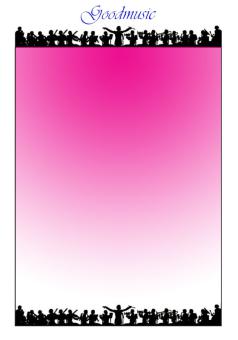Paul Lewis
Devonshire Dances
for harp and orchestra
Paul Lewis
Devonshire Dances
for harp and orchestra
- Compositor Paul Lewis
- Editorial Goodmusic Publishing
- Nº de pedido GMCO079
IVA incluido.,
Más gastos de envío
No disponible en todos los países. Leer más
Descripción de la:
Orchestration: Solo Harp, 2 Flutes (2nd doubling Piccolo), 2 Oboes, 2 Clarinets in Bb, 2 Bassoons, 2 Horns in F, Timpani, Percussion (1 player: Snare Drum, Tambourine, Triangle, Cymbals, Suspended Cymbal, Wood blocks, Sandpaper, Glockenspiel, Bass Drum, Tubular Bells, Cow Bell)
Strings (Violin 1, Violin 2, Viola, Cello, Bass)
Devonshire Dances are dedicated to harpist Elizabeth Jane Baldry and were inspired by her love of Devon and its folklore. Appropriately, for they were composed in the first flush of our ten-year romantic liaison, the premiere took place on St. Valentine's Day, 1998, with Elizabeth Jane as soloist and the South West Sinfonietta conducted by myself. With the exception of the second movement, all the melodies are traditional Devon folk tunes whose origins are lost in the mists of time if not in the mists of Dartmoor itself!
Molly in the Hay: After a cinematic opening we plunge into a rustic romp based on a song which contains the lines: 'I saw the parson out one day, Romping Molly in the hay.'
Chagford Romance: Though I could find many Devon folksongs which spoke of rustic pleasures such as romping Molly in the hay, I could not find a truly romantic one, so I borrowed an air with all the characteristics of an ancient melody which Elizabeth Jane Baldry herself had composed in Chagford. The emotional core of the movement is the heartfelt cadenza which she improvised for the first performance.
Dartmoor Jigs: A set of jigs from Chagford and nearby Dartmoor, the most famous being 'Widecombe Fair'. From polite beginnings the music becomes more and more inebriated until we are galloping merrily across Dartmoor in the middle of the night, four sheets to the wind, only to be deposited unceremoniously on the ground outside our home.
Fol-de-liddle-liddle-lie-do: Variations on the melody of 'The Lying Song', a folksong in which the singer makes ever more preposterous claims, even having us believe he knocked Napoleon down in a bout of fisticuffs. Each boast is greeted with the refrain 'Fol-de-liddle-liddle-lie-do', in other words 'Pull the other one!' The movement attempts to end sensibly with a return to the cinematic opening music but the story-teller bursts in with one last raucous tale-of-the-highly-unlikely before the music rushes to a headlong conclusion. Paul Lewis
Duration 17 minutes
A PACK comprises one full score, string parts 4/4/3/4/2 and any wind, brass and percussion parts.
Strings (Violin 1, Violin 2, Viola, Cello, Bass)
Devonshire Dances are dedicated to harpist Elizabeth Jane Baldry and were inspired by her love of Devon and its folklore. Appropriately, for they were composed in the first flush of our ten-year romantic liaison, the premiere took place on St. Valentine's Day, 1998, with Elizabeth Jane as soloist and the South West Sinfonietta conducted by myself. With the exception of the second movement, all the melodies are traditional Devon folk tunes whose origins are lost in the mists of time if not in the mists of Dartmoor itself!
Molly in the Hay: After a cinematic opening we plunge into a rustic romp based on a song which contains the lines: 'I saw the parson out one day, Romping Molly in the hay.'
Chagford Romance: Though I could find many Devon folksongs which spoke of rustic pleasures such as romping Molly in the hay, I could not find a truly romantic one, so I borrowed an air with all the characteristics of an ancient melody which Elizabeth Jane Baldry herself had composed in Chagford. The emotional core of the movement is the heartfelt cadenza which she improvised for the first performance.
Dartmoor Jigs: A set of jigs from Chagford and nearby Dartmoor, the most famous being 'Widecombe Fair'. From polite beginnings the music becomes more and more inebriated until we are galloping merrily across Dartmoor in the middle of the night, four sheets to the wind, only to be deposited unceremoniously on the ground outside our home.
Fol-de-liddle-liddle-lie-do: Variations on the melody of 'The Lying Song', a folksong in which the singer makes ever more preposterous claims, even having us believe he knocked Napoleon down in a bout of fisticuffs. Each boast is greeted with the refrain 'Fol-de-liddle-liddle-lie-do', in other words 'Pull the other one!' The movement attempts to end sensibly with a return to the cinematic opening music but the story-teller bursts in with one last raucous tale-of-the-highly-unlikely before the music rushes to a headlong conclusion. Paul Lewis
Duration 17 minutes
A PACK comprises one full score, string parts 4/4/3/4/2 and any wind, brass and percussion parts.

